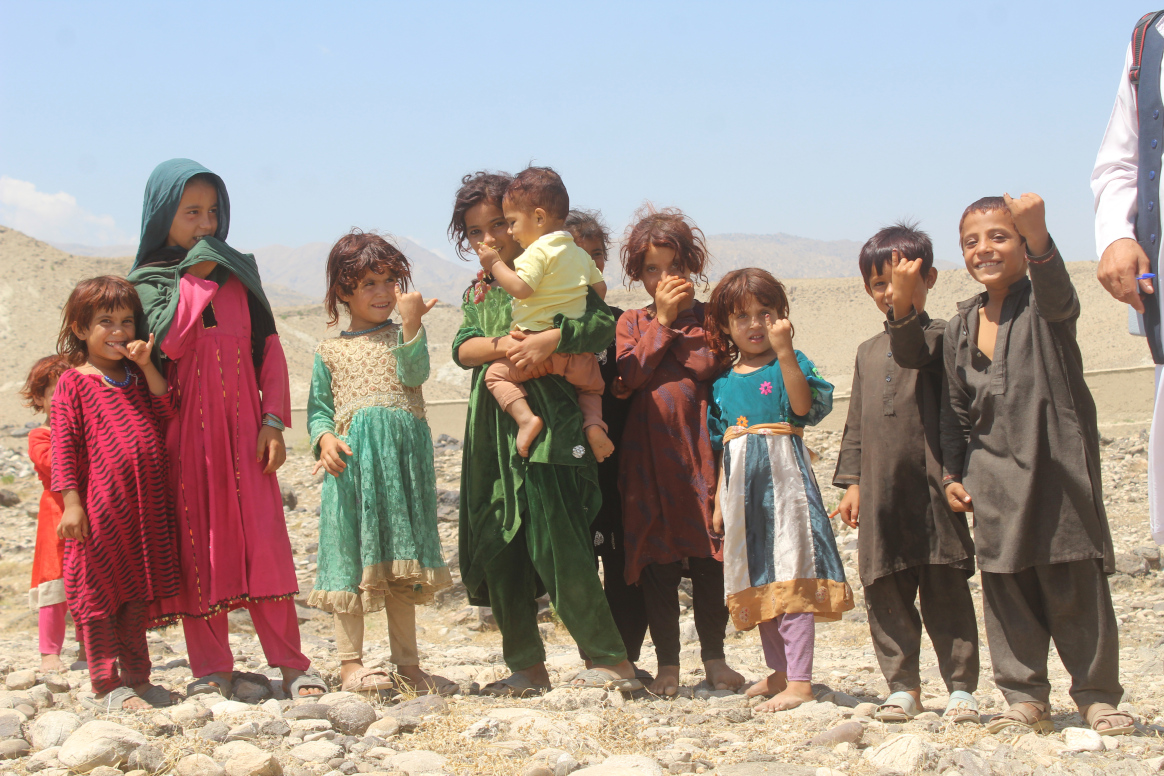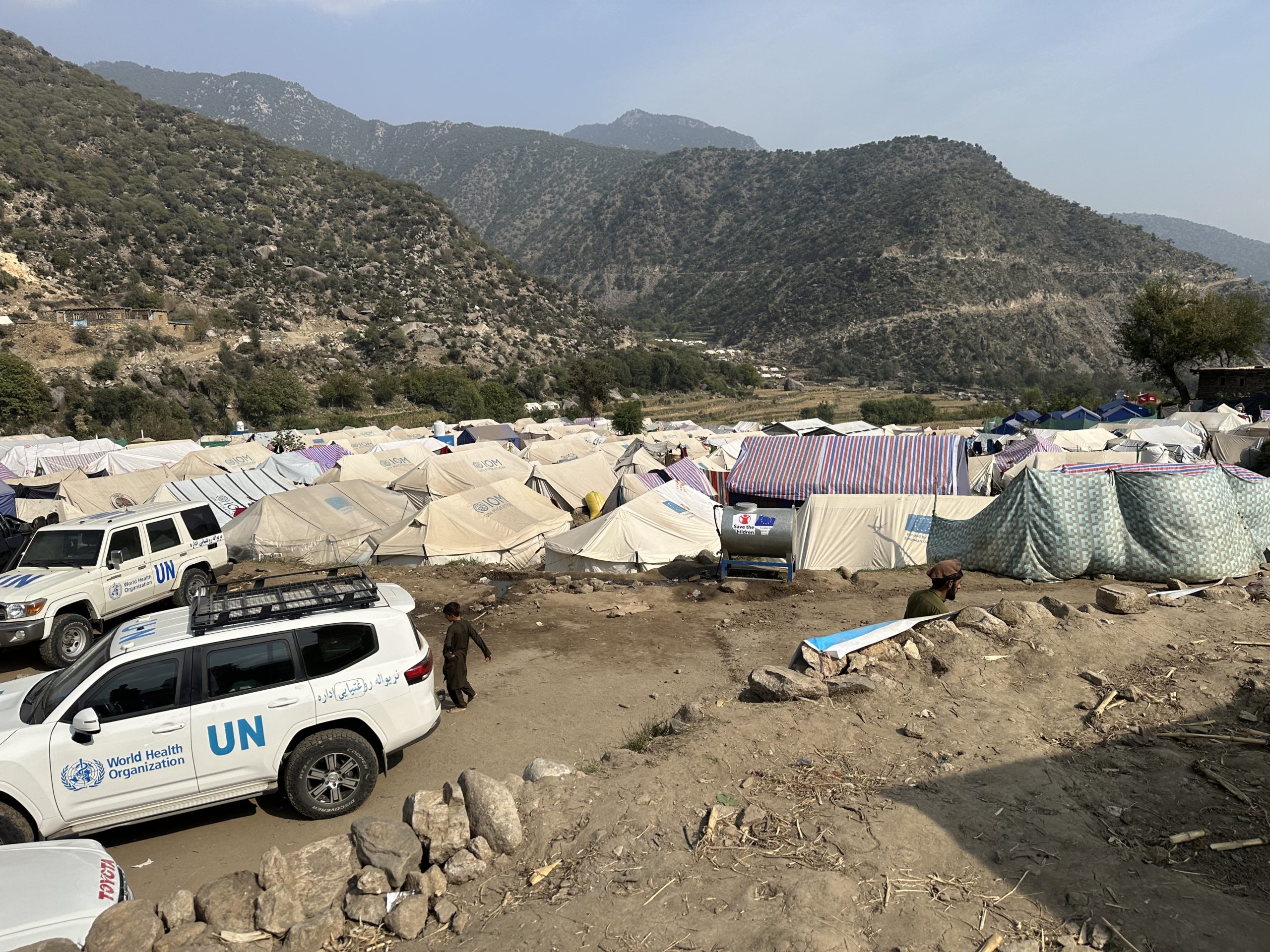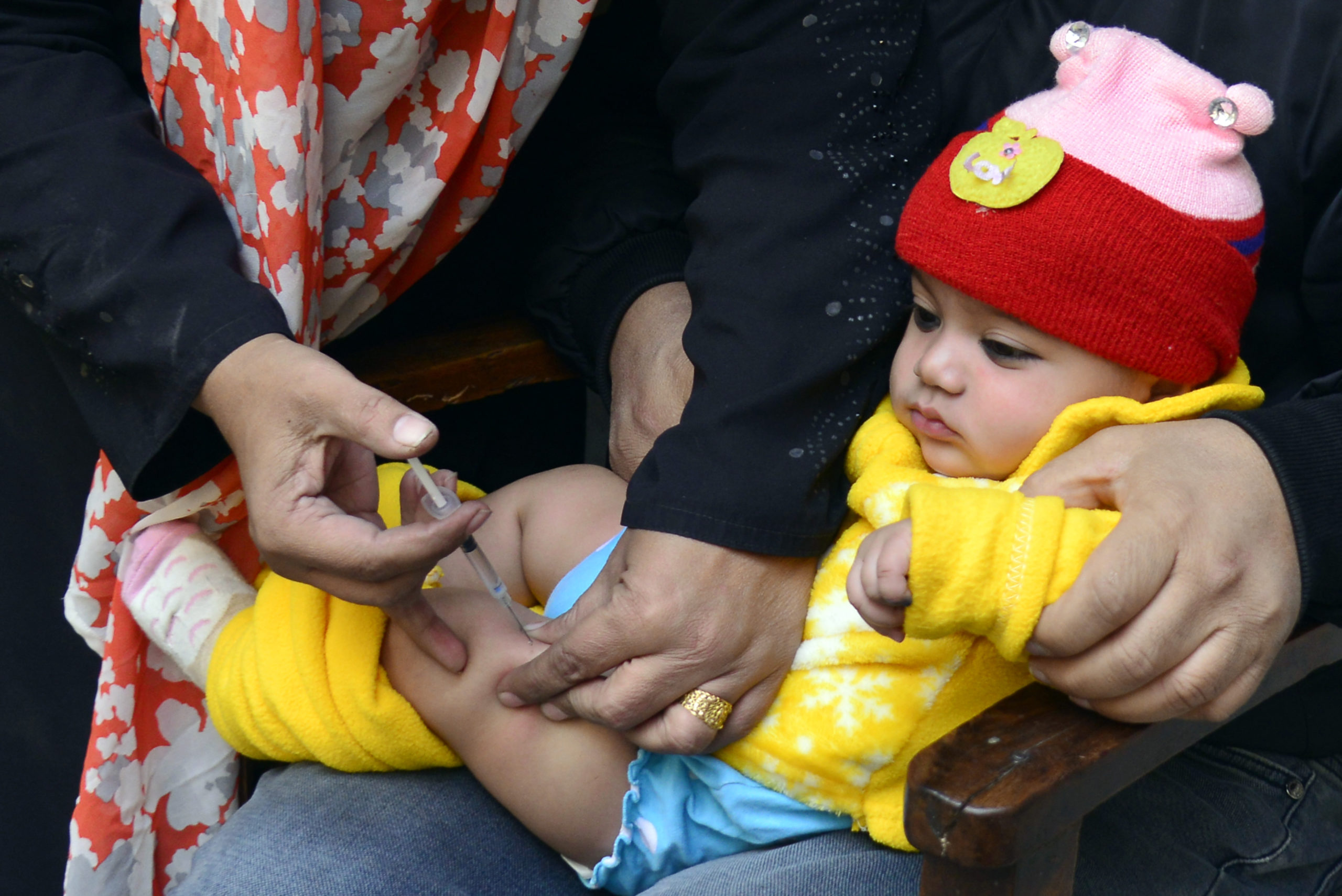
In eastern Afghanistan, one family is helping to vaccinate every last child in their community
Zahed, his daughter Sahar, and son Mohammad all work together. But they are not working for themselves, they are working to eradicate polio.
The family lives in an indigent village in eastern Afghanistan with a diverse community. It is close to the border with Pakistan and many residents are returnees from Pakistan, families displaced by insecurity and nomads passing through. With a population that is often on the move, it is a community with high risk of poliovirus transmission – making it extremely important to vaccinate every child.
Zahed’s family are well-known. Each month, they knock on doors giving free vaccinations and educating their community about the virus.
Although sometimes they don’t have doors to knock – only tents. Known in Afghanistan as Kuchis, nomads are particularly vulnerable to polio, because they move seasonally and often miss vaccination campaigns. Historically underrepresented and often neglected, they are also isolated from health services.
Nomads at risk
Laden with water jugs, cooking equipment and clothes, the Kuchi travel with their livestock and move between provinces depending on the climate. Their goats, sheep and camels are often exchanged or sold for grain, tents and other essential items. There are an estimated two million nomads in Afghanistan.
Over 120 nomad families with 194 children under the age of five recently arrived in Zahed’s village from shelters along the Kabul River. They come in the winter because it offers warmer, more fertile ground for their animals to graze. They return to Kabul and Bamiyan during the spring, when the land is more arable.
To eradicate polio in Afghanistan, every child must be vaccinated – including the nomads. And this is exactly what Zahed’s family are doing. They go to each tent, and ensure every child is protected against polio. Last week, Zahed’s 20-year-old son Mohammad vaccinated 719 children, including nomads. “My community are happy with my service. I’m young, and it is a privilege to make a difference,’’ says Mohammad.
The family is not only protecting children, they are also contributing to community cohesion and bridging divides between nomads and residents. The challenge, however, is continuing to vaccinate nomads when they are on the move.
The motivation of Zahed’s family is impressive, but it is not always easy. A handful of people in the village reject the vaccine because they think that it is unsafe or not halal – permissible in traditional Islamic law. But watching an entire family working to eradicate polio helps break misconceptions. At the start of each vaccination campaign, Mohammad gives one of his own children the vaccine to prove that it is safe.
Becoming advocates
Zahed’s family have turned almost all the families who were refusing the polio vaccine into advocates for vaccination. Mohammad was already a prominent member of the community and was previously given a ‘Turban’ – headwear used to recognize a person who makes decisions on behalf of their community and country – to honour his relentless work to improve water, sanitation and development in his village. Now his role as a polio eradication ambassador is developing trust and increasing acceptance of the vaccine.
In 2017, three polio cases and 14 positive environmental samples were reported in eastern Afghanistan. A positive sample indicates that the polio virus is present, and that children with low immunity are at risk of contracting the disease. The first polio case of 2018 was also reported in eastern Afghanistan, making it an urgent priority location for nationwide eradication.
In the village, polio has almost been eradicated. But this is not enough for Zahed’s family. As they prepare for their next vaccination round, they are determined not to stop their work until everyone in their community – wherever they are from – is safe from polio.



